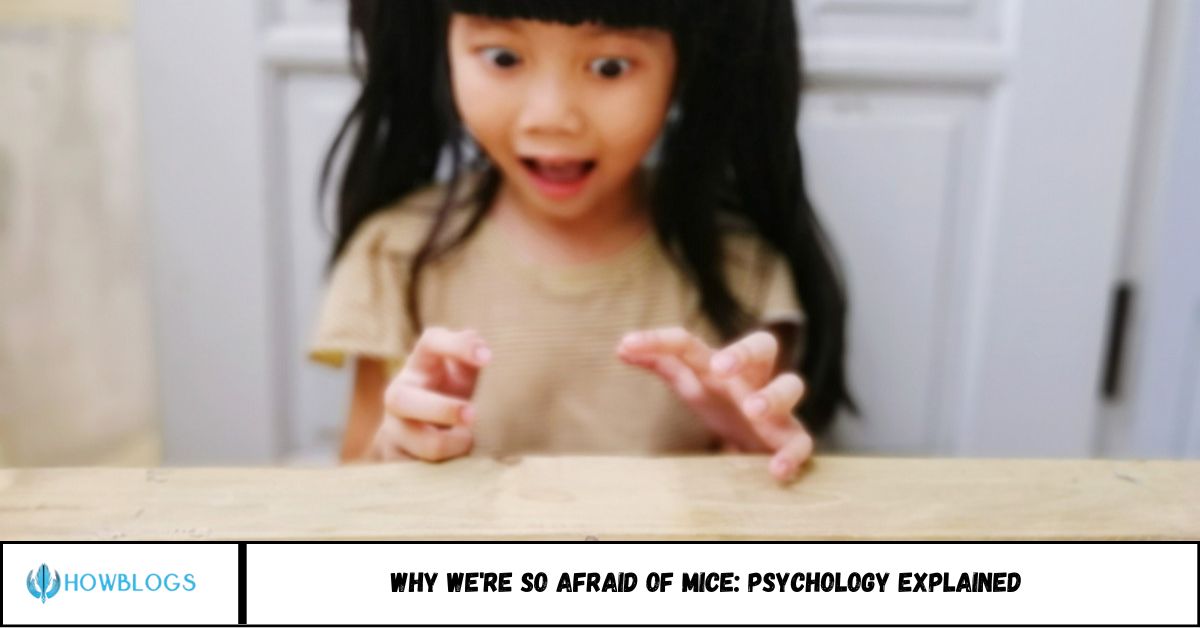Table of Contents
If that sounds familiar, you’re not alone. Despite their small size, mice and other rodents trigger outsized fear in millions of people. From sudden shrieks to standing on chairs, this reaction often feels instinctive but why?
In this article, we explore the psychological, evolutionary, and cultural roots of our fear of mice and rodents. We’ll uncover what the science says, how common this fear really is, and what you can do if your fear feels overwhelming.
Humans are thousands of times larger than mice and rats—yet for many of us, a single twitch of their whiskers can spark instant panic. That deep-rooted fear even has a name: musophobia. But where does it actually come from?
I still remember the first home my husband and I moved into back in 2011—a quaint beach shack in South Carolina, perched on stilts just blocks from the shore. Idyllic, yes… until the basement turned into a playground for oversized marsh rats. They’d dash across the floor with twitchy noses, bare tails dragging like unwanted ribbons, and those sharp front teeth flashing like tiny daggers. I still get chills thinking about it.
Even the most laid-back person will yelp when a rodent appears. But is this fear hardwired into us—or is it something we pick up along the way? Let’s explore the roots of musophobia and uncover what really makes mice so frightening.
A Quick Look: Why the Fear Exists
- Over 1 in 3 adults report fear of rodents.
- The fear of mice even has a name: musophobia.
- It’s often more common in women than men.
- Despite rarely posing real danger, rodents spark intense panic.
Let’s unpack where this fear comes from and why it sticks.
1. Evolution Hardwired Us to Be Wary
Our ancestors had good reason to avoid rodents. Mice and rats were known to carry disease, steal food, and hide in dark, unpredictable places. Over time, our brains may have developed an instinctive aversion to their rapid movements and sneaky behavior. While the danger today is lower, our primal alert system hasn’t updated.
2. Fast, Unpredictable Movements Trigger Panic
Rodents move in quick, darting bursts—exactly the kind of motion that startles the human nervous system. Our eyes and brain react strongly to sudden, small movements. This reaction is more about loss of control and surprise than genuine fear of the animal itself.
3. Cultural Influence and Media Amplify the Fear
Movies, cartoons, and even family reactions often teach us to fear mice. Think of classic scenes where someone screams and jumps on furniture. That behavior gets learned early and can reinforce irrational fear, even if we’ve never had a bad experience ourselves.
4. The Fear Isn’t Always About the Mouse
For many, the fear of mice masks deeper anxieties—like contamination, disease, or lack of control. Rodents often appear in places we associate with filth or decay. In these cases, it’s not just the animal, but what it represents, that drives the fear.
5. Phobias Can Be Conditioned—But Also Treated
Phobias often start with a single intense experience or repeated negative exposure. The good news? Like most learned fears, musophobia can be unlearned. Cognitive-behavioral therapy (CBT), exposure therapy, or even mindfulness techniques have been shown to help.
6. Are We More Afraid of Mice Than We Admit?
Interestingly, many people feel shame about their fear of something so small. But studies show that fear of rodents is more common than public data suggests, partly because people underreport it. That means you’re likely not the only one in the room quietly panicking when a mouse appears.
Quick Facts That Might Surprise You
- Mice don’t see well—they rely mostly on smell and touch.
- Most mice would rather flee than fight and are terrified of humans.
- Mice are less likely to bite than pet hamsters.
- In many cultures, mice are symbols of good luck—not fear.
Frequently Asked Questions (FAQs)
1. Is fear of mice a real phobia?
Yes. It’s called musophobia or muriphobia and is considered a specific phobia under anxiety disorders.
2. Why do mice scare me even though I know they’re harmless?
It’s often the sudden movement, unpredictability, or associations with disease—not the animal itself—that triggers fear.
3. Are women more likely to fear mice than men?
Statistically, yes. Cultural conditioning and biological differences in fear response may play a role.
4. Can you develop a mouse phobia later in life?
Absolutely. Phobias can develop at any age, often after a stressful or traumatic experience involving rodents.
5. Can I overcome my fear of mice?
Yes. Therapy, gradual exposure, and education can significantly reduce or even eliminate rodent-related fear.
6. Why do I freeze or scream when I see a mouse?
That’s your body’s fight-or-flight response. Your brain flags sudden movement as a threat, even when it logically isn’t.
Conclusion
Our fear of mice isn’t just about the creature itself. It’s about evolution, psychology, surprise, and symbolism. From survival instincts to cultural imprinting, there are many reasons a small rodent can trigger such a big reaction. But just as this fear is learned, it can also be unlearned—through awareness, support, and the right tools.

